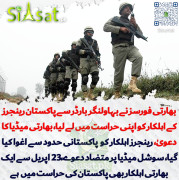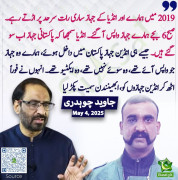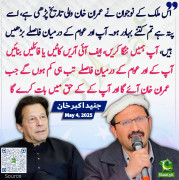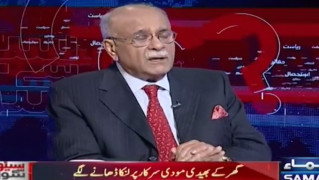Firstly, you DID NOT answer my very specific question in RED and then you went off tangentially with some presumptive hyperbole!
Secondly, just because YOU don't know that the ahadith were written in the times of the Prophet (SAW) doesn't mean it wasn't written. If you cared to check, the manuscripts of the Sahabah's OWN handwriting of the ahadith exist till THIS day. For example, one can find the manuscripts of Anas ibn Malik (RA), Abu Hurayrah (RA), Abdullah ibn Abbas (RA), Ayesha bint Abi Bakr (RA) and over 120 Sahabah in many books such as those of Ibn Abi Shaybah, Abdur Razzaq et al. You seem to be unaware that not just the Qur'an and Hadith, but even the letters and treaties of Rasulullah (SAW) in his own seal are STILL preserved till this date!
You are terribly confused and this is apparent from the fact that you are showing TERTIARY sources as "first compilations". All of the Sahih Sittah books are not PRIMARY collections, but TERTIARY collections. For example, Sahih Al-Bukhari's shortest chain of narrative (known as silsilah adh-dhahhab - or "the chain of gold") is 3 narrators between Bukhari and Rasulullah (SAW). The Sahih Sittah are ALL tertiary sources that derive their ahadith from primary sources as I have elucidated in my previous paragraph.
Your claim is as stupid as someone claiming that the mus-haf of the Qur'an found in Baghdad by Khalifah Harun Ar-Rashid is a corruption because Harun Ar-Rashid died in 183 AH which is 170+ years after the death of Rasulullah (SAW)! Clearly, the mus-haf of Harun Ar-Rashid was a TERTIARY source that was based on the PRIMARY source which is the mush-haf of Uthman (RA). By the way, the mus-haf of Uthman (RA) was compiled and disseminated at least 23 years after the death of Rasulullah (SAW).
Also, you seem to be unaware that NO sahabi/sahabiyyah had the FULL Qur'an in their presence. Hazrat Hafsah (RA) had the most complete one and even she didn't have some verses of Surah Baqarah as some of her manuscripts were either lost or damaged.
Like I said, Islam is not a kiddy matter. If you don't know the full details of the subject matter then you might as well SHUT your mouth. And please don't dodge my question; answer it. I asked you a simple question: Why is the first revealed verse of the Qur'an surah number 96 and Surah Fatiha number 1? Can you show us WHERE in the Qur'an it is said that this should be the case? Or are you going to concede that the compilation of the Qur'an was done by VERBAL instruction of the Prophet (SAW)?
Thanks.
Secondly, just because YOU don't know that the ahadith were written in the times of the Prophet (SAW) doesn't mean it wasn't written. If you cared to check, the manuscripts of the Sahabah's OWN handwriting of the ahadith exist till THIS day. For example, one can find the manuscripts of Anas ibn Malik (RA), Abu Hurayrah (RA), Abdullah ibn Abbas (RA), Ayesha bint Abi Bakr (RA) and over 120 Sahabah in many books such as those of Ibn Abi Shaybah, Abdur Razzaq et al. You seem to be unaware that not just the Qur'an and Hadith, but even the letters and treaties of Rasulullah (SAW) in his own seal are STILL preserved till this date!
You are terribly confused and this is apparent from the fact that you are showing TERTIARY sources as "first compilations". All of the Sahih Sittah books are not PRIMARY collections, but TERTIARY collections. For example, Sahih Al-Bukhari's shortest chain of narrative (known as silsilah adh-dhahhab - or "the chain of gold") is 3 narrators between Bukhari and Rasulullah (SAW). The Sahih Sittah are ALL tertiary sources that derive their ahadith from primary sources as I have elucidated in my previous paragraph.
Your claim is as stupid as someone claiming that the mus-haf of the Qur'an found in Baghdad by Khalifah Harun Ar-Rashid is a corruption because Harun Ar-Rashid died in 183 AH which is 170+ years after the death of Rasulullah (SAW)! Clearly, the mus-haf of Harun Ar-Rashid was a TERTIARY source that was based on the PRIMARY source which is the mush-haf of Uthman (RA). By the way, the mus-haf of Uthman (RA) was compiled and disseminated at least 23 years after the death of Rasulullah (SAW).
Also, you seem to be unaware that NO sahabi/sahabiyyah had the FULL Qur'an in their presence. Hazrat Hafsah (RA) had the most complete one and even she didn't have some verses of Surah Baqarah as some of her manuscripts were either lost or damaged.
Like I said, Islam is not a kiddy matter. If you don't know the full details of the subject matter then you might as well SHUT your mouth. And please don't dodge my question; answer it. I asked you a simple question: Why is the first revealed verse of the Qur'an surah number 96 and Surah Fatiha number 1? Can you show us WHERE in the Qur'an it is said that this should be the case? Or are you going to concede that the compilation of the Qur'an was done by VERBAL instruction of the Prophet (SAW)?
Thanks.
Last edited:
































